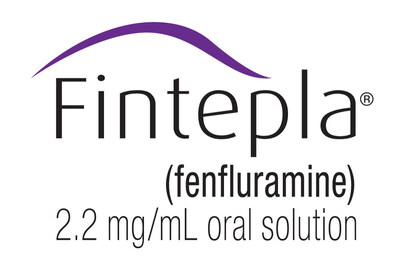UCB Presents New Data on Impact and Burden of Epilepsy at 2024 American Epilepsy Society (AES) Annual Meeting
Rhea-AI Summary
UCB presented new data at the 2024 American Epilepsy Society Annual Meeting focusing on epilepsy's impact and burden. Key findings include challenges faced by women of childbearing age with epilepsy in accessing relevant treatment information, with a social media study across six countries analyzing nearly 250,000 posts highlighting information gaps and anxiety issues.
The research showed that 71% of participants reported experiencing prolonged seizures, with 74% experiencing anxiety and/or depression. The company also presented data on Staccato alprazolam, an investigational drug delivery system, and new efficacy data on FINTEPLA for Lennox-Gastaut syndrome treatment. A quality-of-life survey of caregivers for individuals with developmental and epileptic encephalopathies revealed that most patients experienced disruptive symptoms affecting daily activities.
Positive
- FINTEPLA showed rapid efficacy in treating seizures associated with Lennox-Gastaut syndrome
- Phase 1 study demonstrated Staccato alprazolam as an efficient delivery route for seizure treatment
Negative
- 71% of study participants reported experiencing prolonged seizures
- 74% of participants reported anxiety/depression related to epilepsy management
- 60% required medication or therapy for mental health management
News Market Reaction 1 Alert
On the day this news was published, UCBJY declined 0.62%, reflecting a mild negative market reaction.
Data tracked by StockTitan Argus on the day of publication.
- Results of a social media listening study of women of childbearing age with epilepsy underscore the need for HCPs to provide relevant information at critical time points to support shared decision-making2
- A quality-of-life survey administered to caregivers of individuals with developmental and epileptic encephalopathies (DEEs) suggests improved understanding of caregiver definitions of normal and disruptive experiences can help researchers prioritize areas of focus to improve outcomes3
- Study shows prolonged seizures are a key driver in worsening quality of life for people with epilepsy and their caregivers4
- Pharmacokinetic data from Phase 1 study shows alprazolam administration via the Staccato® hand-held device is an efficient delivery route currently being studied for stereotypical prolonged seizures5
- New efficacy data on FINTEPLA® (fenfluramine) as a treatment for seizures associated with Lennox-Gastaut syndrome (LGS)6
Key data being presented show women of childbearing age (WoCBA) with epilepsy face challenges in gaining access to relevant information related to their treatment at the right time and stage in their motherhood journey.2 Often, relevant information is conflicting, not provided or easy to obtain, and questions related to epilepsy and pregnancy remain unanswered, leading to confusion and heightened anxiety.2
"At UCB, we recognize that when we listen to people living with and caring for those with epilepsy and rare syndromes and give them the opportunity to share their stories, we are better able to understand and address their range of unique needs. The robust data presented at AES demonstrate our commitment to symptom management as well as holistic patient care," said Brad Chapman, Head of
In other data presented, the impact and associated burden of prolonged seizures (PS) have been found to have a profound effect on the mental health of people living with epilepsy and their caregivers, including anxiety and/or depression, reinforcing the need to bring more holistic solutions to patients and their caregivers.4
"Prolonged seizures can significantly worsen both the physical and emotional well-being of people living with epilepsy and their caretakers, underscoring the critical need for timely, effective treatment. We are excited to present new data at AES on Staccato alprazolam, an investigational drug under study in a phase 3 trial for prolonged seizures," said Hugo Xi, Head of Medical Neurology, UCB.
Presentation on WoCBA with Epilepsy Going Through Motherhood: Experiences of Women of Childbearing Age with Epilepsy Throughout their Motherhood Journey and Results from a Social Media Listening Study
- A social media listening study was conducted across six countries (
U.S. ,UK ,France ,Germany ,Spain andItaly ) to characterize the issues and unmet needs of WoCBA (ages 15-49) with epilepsy related to their motherhood journey. Nearly 250,000 posts on social media accounts (X, forums, YouTube, blogs, Instagram and Facebook) were analyzed over a 12-month period.2 - Study results, presented in a poster session, found that WoCBA with epilepsy want to be empowered through knowledge and feel they need support finding comprehensive information at the right time in their motherhood journey to increase their confidence in shared decision-making.2 However, relevant information often is not provided or easy to obtain, and these women experience confusion and heightened anxiety because they are given conflicting guidance, and their questions related to epilepsy, contraception, pregnancy, and parenthood remain unanswered.2
Presentation on Impact of Prolonged Seizures on Patients' and Caregivers' Quality of Life
- Interviews and focus groups were conducted with
U.S. -based adults aged 18 or older with epilepsy and caregivers of people with epilepsy age 12 or older to identify unmet needs, determine the greatest areas of burden, and assess the impact on QoL of PS, which typically last 2 or more minutes and usually do not stop on their own or worsen over time.4 - Study results, presented in a poster session, found that
71% of participants reported that they or their loved ones were currently experiencing PS. 4 Living with PS has a profound effect on the mental health of people with epilepsy and their caregivers.4 Among participants,74% experienced anxiety and/or depression, and60% reported receiving medication or seeking therapy to help manage their mental health.4 Given this negative impact on QoL, there is an opportunity to encourage discussion and build resources for social, emotional, and psychological support for individuals experiencing PS and their caregivers.4
Presentation on Inhalation as an Efficient Delivery Route of Alprazolam for the Treatment of Acute Seizures: Randomized Study of Staccato® Alprazolam Relative to Oral Alprazolam
- An analysis of data from a Phase 1 study of Staccato alprazolam compared the plasma concentration of alprazolam following administration via inhalation with the Staccato device with that of alprazolam administered orally.5
- Staccato alprazolam, an investigational drug in Phase 3 clinical development, is designed to be used as a single-use epileptic seizure rescue therapy that combines the Staccato delivery technology with alprazolam, a benzodiazepine.5
- Staccato® alprazolam is a hand-held device that can provide rapid systemic delivery of alprazolam via inhalation, with the potential to provide rapid and early seizure termination.5
Presentation On Disruptive Impacts Of Developmental And Epileptic Encephalopathies On Patient And Family Life: A Quality-Of-Life Survey
- An internet-based DEE survey to define "normal" and "disruptive" symptoms by understanding how 5 key domains (seizures, sleep, communication, behavior and activities of daily living [ADLs]) affect the individual and their family members, developed in consultation with Dravet syndrome (DS) and Lennox-Gastaut syndrome (LGS) patient communities via patient advocacy websites, social media, and patient community events, was presented as a late-breaking abstract.3
- A majority of the 489 caregivers reported that the patients with DEE experienced disruptive seizures, sleep or behavior, with these disruptive symptoms leading to temporary loss of communication and/or at least one activity of daily living (ADL).3
Presentation on FINTEPLA® (fenfluramine) Efficacy Trajectories in Placebo or Treatment Groups From Randomized Controlled Trial to Open-Label Extension
- A phase 3 randomized study of FINTEPLA (fenfluramine) for management of seizures associated with Lennox-Gastaut syndrome (LGS) was presented as a podium presentation.6
- Results showed that patients previously randomized to placebo in the randomized controlled trial (RCT) exhibited improvements in efficacy outcomes following transition to FINTEPLA in the open-label extension (OLE).6 The change in frequency of seizures associated with a fall occurred during month 1 of the OLE indicating a rapid onset of efficacy.6 Improvements were similarly noted in responder rates for seizures associated with a fall and clinical global impression – improvement (CGI-I) scale.6
About Staccato® Alprazolam
Staccato® alprazolam is an investigational treatment (Phase 3) currently being studied to assess its potential to rapidly terminate seizures at risk of becoming prolonged or progressing to a more severe seizure type. The ability to stop a seizure as it is starting is an unmet need for epilepsy management today in the outpatient setting.7 This portable treatment combines the Staccato® delivery technology with alprazolam, a benzodiazepine, in a single inhaled dose. *The safety and efficacy of Staccato® alprazolam have not been established, and it is not currently approved for use in this indication by any regulatory authority worldwide.
About Epilepsy
Epilepsy is a common neurological condition worldwide and affects approximately 50 million people. Epilepsy can develop in any person at any age and is usually diagnosed after a person has had at least two seizures (or after one seizure with a high risk for more) that were not caused by some known medical condition.
About UCB in Epilepsy
For three decades we've been committed to people living with epilepsy and their families, surrounding the patient and caregiver through every step of their care journey. At our core we have a responsibility to elevate the healthcare ecosystem. Because of this, we have established our legitimacy on the front lines of epilepsy research, development, and treatment innovation. But our past breakthroughs are only a prologue to our future. We will continue to reimagine how we care for patients, leveraging today's expertise for a better tomorrow. With so much experience behind us and so much potential ahead, we are more invested than ever in profoundly improving the lives of those living with or caring for those with epilepsy or a rare epilepsy syndrome – through our relentless pursuit of a seizure-free life.
About FINTEPLA® (fenfluramine) Oral Solution1
FINTEPLA is indicated for the treatment of seizures associated with Dravet syndrome (DS) and Lennox-Gastaut syndrome (LGS) in patients 2 years of age and older.
FINTEPLA is available only through a restricted distribution program called the FINTEPLA REMS. Further information is available at www.FINTEPLAREMS.com or by telephone at +1 877 964 3649.
IMPORTANT SAFETY INFORMATION
BOXED WARNING: VALVULAR HEART DISEASE and PULMONARY ARTERIAL HYPERTENSION
- There is an association between serotonergic drugs with 5-HT2B receptor agonist activity, including fenfluramine (the active ingredient in FINTEPLA), and valvular heart disease and pulmonary arterial hypertension.
- Echocardiogram assessments are required before, during, and after treatment with FINTEPLA.
- FINTEPLA is available only through a restricted program called the FINTEPLA REMS.
CONTRAINDICATIONS
FINTEPLA is contraindicated in patients with hypersensitivity to fenfluramine or any of the excipients in FINTEPLA and with concomitant use, or within 14 days of the administration, of monoamine oxidase inhibitors because of an increased risk of serotonin syndrome.
WARNINGS AND PRECAUTIONS
Valvular Heart Disease and Pulmonary Arterial Hypertension (see Boxed Warning): Because of the association between serotonergic drugs with 5-HT2B receptor agonist activity, including fenfluramine (the active ingredient in FINTEPLA), and valvular heart disease (VHD) and pulmonary arterial hypertension (PAH), cardiac monitoring via echocardiogram is required prior to starting treatment, during treatment, and after treatment with FINTEPLA concludes. Cardiac monitoring via echocardiogram can aid in early detection of these conditions. In clinical trials for DS and LGS of up to 3 years in duration, no patient receiving FINTEPLA developed VHD or PAH.
Monitoring: Prior to starting treatment, patients must undergo an echocardiogram to evaluate for VHD and PAH. Echocardiograms should be repeated every 6 months, and once at 3-6 months post treatment with FINTEPLA.
The prescriber must consider the benefits versus the risks of initiating or continuing treatment with FINTEPLA if any of the following signs are observed via echocardiogram: valvular abnormality or new abnormality; VHD indicated by mild or greater aortic regurgitation or moderate or greater mitral regurgitation, with additional characteristics of VHD (eg, valve thickening or restrictive valve motion); PAH indicated by elevated right heart/pulmonary artery pressure (PASP >35 mmHg).
FINTEPLA REMS Program (see Boxed Warning): FINTEPLA is available only through a restricted distribution program called the FINTEPLA Risk Evaluation and Mitigation Strategy (REMS) Program. Prescribers must be certified by enrolling in the FINTEPLA REMS. Prescribers must counsel patients receiving FINTEPLA about the risk of VHD and PAH, how to recognize signs and symptoms of VHD and PAH, the need for baseline (pretreatment) and periodic cardiac monitoring via echocardiogram during FINTEPLA treatment, and cardiac monitoring after FINTEPLA treatment. Patients must enroll in the FINTEPLA REMS and comply with ongoing monitoring requirements. The pharmacy must be certified by enrolling in the FINTEPLA REMS and must only dispense to patients who are authorized to receive FINTEPLA. Wholesalers and distributors must only distribute to certified pharmacies. Further information is available at www.FinteplaREMS.com or by telephone at 1-877-964-3649.
Decreased Appetite and Decreased Weight: FINTEPLA can cause decreases in appetite and weight. Decreases in weight appear to be dose related. Approximately half of the patients with LGS and most patients with DS resumed the expected measured increases in weight during the open-label extension studies. Weight should be monitored regularly during treatment with FINTEPLA, and dose modifications should be considered if a decrease in weight is observed.
Somnolence, Sedation, and Lethargy: FINTEPLA can cause somnolence, sedation, and lethargy. Other central nervous system (CNS) depressants, including alcohol, could potentiate these effects of FINTEPLA. Prescribers should monitor patients for somnolence and sedation and should advise patients not to drive or operate machinery until they have gained sufficient experience on FINTEPLA to gauge whether it adversely affects their ability to drive or operate machinery.
Suicidal Behavior and Ideation: Antiepileptic drugs (AEDs), including FINTEPLA, increase the risk of suicidal thoughts or behaviors in patients taking these drugs for any indication. Patients treated with an AED for any indication should be monitored for the emergence or worsening of depression, suicidal thoughts or behaviors, or any unusual changes in mood or behavior.
Anyone considering prescribing FINTEPLA or any other AED must balance the risk of suicidal thoughts or behaviors with the risks of untreated illness. Epilepsy and many other illnesses for which AEDs are prescribed are themselves associated with morbidity and mortality and an increased risk of suicidal thoughts and behaviors. Should suicidal thoughts and behaviors emerge during treatment, consider whether the emergence of these symptoms in any given patient may be related to the illness being treated.
Withdrawal of Antiepileptic Drugs: As with most AEDs, FINTEPLA should generally be withdrawn gradually because of the risk of increased seizure frequency and status epilepticus. If withdrawal is needed because of a serious adverse reaction, rapid discontinuation can be considered.
Serotonin Syndrome: Serotonin syndrome, a potentially life-threatening condition, may occur with FINTEPLA, particularly during concomitant administration of FINTEPLA with other serotonergic drugs, including, but not limited to, selective serotonin-norepinephrine reuptake inhibitors (SNRIs), selective serotonin reuptake inhibitors (SSRIs), tricyclic antidepressants (TCAs), bupropion, triptans, dietary supplements (eg, St. John's Wort, tryptophan), drugs that impair metabolism of serotonin (including monoamine oxidase inhibitors [MAOIs], which are contraindicated with FINTEPLA), dextromethorphan, lithium, tramadol, and antipsychotics with serotonergic agonist activity. Patients should be monitored for the emergence of signs and symptoms of serotonin syndrome, which include mental status changes (eg, agitation, hallucinations, coma), autonomic instability (eg, tachycardia, labile blood pressure, hyperthermia), neuromuscular signs (eg, hyperreflexia, incoordination), and/or gastrointestinal symptoms (eg, nausea, vomiting, diarrhea). If serotonin syndrome is suspected, treatment with FINTEPLA should be stopped immediately and symptomatic treatment should be started.
Increase in Blood Pressure: FINTEPLA can cause an increase in blood pressure. Rare cases of significant elevation in blood pressure, including hypertensive crisis, has been reported in adult patients treated with fenfluramine, including patients without a history of hypertension. In clinical trials for DS and LGS of up to 3 years in duration, no pediatric or adult patient receiving FINTEPLA developed hypertensive crisis. Monitor blood pressure in patients treated with FINTEPLA.
Glaucoma: Fenfluramine can cause mydriasis and can precipitate angle closure glaucoma. Consider discontinuing treatment with FINTEPLA in patients with acute decreases in visual acuity or ocular pain.
ADVERSE REACTIONS
The most common adverse reactions observed in DS studies (incidence at least
The most common adverse reactions observed in the LGS study (incidence at least
DRUG INTERACTIONS
Strong CYP1A2, CYP2B6, or CYP3A Inducers: Coadministration with strong CYP1A2, CYP2B6, or CYP3A inducers will decrease fenfluramine plasma concentrations. If coadministration of a strong CYP1A2, CYP2B6, or CYP3A inducer with FINTEPLA is necessary, monitor the patient for reduced efficacy and consider increasing the dosage of FINTEPLA as needed. If a strong CYP1A2, CYP2B6, or CYP3A inducer is discontinued during maintenance treatment with FINTEPLA, consider gradual reduction in the FINTEPLA dosage to the dose administered prior to initiating the inducer.
Strong CYP1A2 or CYP2D6 Inhibitors: Coadministration with strong CYP1A2 or CYP2D6 inhibitors will increase fenfluramine plasma concentrations. If FINTEPLA is coadministered with strong CYP1A2 or CYP2D6 inhibitors, the maximum daily dosage of FINTEPLA is 20 mg. If a strong CYP1A2 or CYP2D6 inhibitor is discontinued during maintenance treatment with FINTEPLA, consider gradual increase in the FINTEPLA dosage to the dose recommended without CYP1A2 or CYP2D6 inhibitors. If FINTEPLA is coadministered with stiripentol and a strong CYP1A2 or CYP2D6 inhibitor, the maximum daily dosage of FINTEPLA is 17 mg.
USE IN SPECIFIC POPULATIONS
In patients with severe impairment of kidney function (estimated glomerular filtration rate [eGFR]) 15 to 29 mL/min/1.73m2, dosage adjustments are recommended. FINTEPLA has not been studied in patients with kidney failure (eGFR <15 mL/min/1.73m2).
Combined molar exposures of fenfluramine and norfenfluramine were increased in subjects with various degrees of hepatic impairment (Child-Pugh Class A, B, and C), necessitating a dosage adjustment in these patients.
To report SUSPECTED ADVERSE REACTIONS, contact UCB, Inc. at 1 844-599-2273 or FDA at 1-800-FDA-1088 or www.fda.gov/medwatch.
Please see full Prescribing Information including Boxed Warning and Medication Guide, for additional Important Safety Information on FINTEPLA.
About UCB
UCB,
For further information, contact UCB:
Investor Relations
Antje Witte
T: +32.2.559.94.14
email antje.witte@ucb.com
US Communications
Becky Malone
T +1.919.605.9600
Email becky.malone@ucb.com
Forward looking statements
This press release may contain forward-looking statements including, without limitation, statements containing the words "believes", "anticipates", "expects", "intends", "plans", "seeks", "estimates", "may", "will", "continue" and similar expressions. These forward-looking statements are based on current plans, estimates and beliefs of management. All statements, other than statements of historical facts, are statements that could be deemed forward-looking statements, including estimates of revenues, operating margins, capital expenditures, cash, other financial information, expected legal, arbitration, political, regulatory or clinical results or practices and other such estimates and results. By their nature, such forward-looking statements are not guarantees of future performance and are subject to known and unknown risks, uncertainties and assumptions which might cause the actual results, financial condition, performance or achievements of UCB, or industry results, to differ materially from those that may be expressed or implied by such forward-looking statements contained in this press release. Important factors that could result in such differences include: changes in general economic, business and competitive conditions, the inability to obtain necessary regulatory approvals or to obtain them on acceptable terms or within expected timing, costs associated with research and development, changes in the prospects for products in the pipeline or under development by UCB, effects of future judicial decisions or governmental investigations, safety, quality, data integrity or manufacturing issues; potential or actual data security and data privacy breaches, or disruptions of our information technology systems, product liability claims, challenges to patent protection for products or product candidates, competition from other products including biosimilars, changes in laws or regulations, exchange rate fluctuations, changes or uncertainties in tax laws or the administration of such laws, and hiring and retention of its employees. There is no guarantee that new product candidates will be discovered or identified in the pipeline, will progress to product approval or that new indications for existing products will be developed and approved. Movement from concept to commercial product is uncertain; preclinical results do not guarantee safety and efficacy of product candidates in humans. So far, the complexity of the human body cannot be reproduced in computer models, cell culture systems or animal models. The length of the timing to complete clinical trials and to get regulatory approval for product marketing has varied in the past and UCB expects similar unpredictability going forward. Products or potential products, which are the subject of partnerships, joint ventures or licensing collaborations may be subject to differences disputes between the partners or may prove to be not as safe, effective or commercially successful as UCB may have believed at the start of such partnership. UCB's efforts to acquire other products or companies and to integrate the operations of such acquired companies may not be as successful as UCB may have believed at the moment of acquisition. Also, UCB or others could discover safety, side effects or manufacturing problems with its products and/or devices after they are marketed. The discovery of significant problems with a product similar to one of UCB's products that implicate an entire class of products may have a material adverse effect on sales of the entire class of affected products. Moreover, sales may be impacted by international and domestic trends toward managed care and health care cost containment, including pricing pressure, political and public scrutiny, customer and prescriber patterns or practices, and the reimbursement policies imposed by third-party payers as well as legislation affecting biopharmaceutical pricing and reimbursement activities and outcomes. Finally, a breakdown, cyberattack or information security breach could compromise the confidentiality, integrity and availability of UCB's data and systems.
Given these uncertainties, you should not place undue reliance on any of such forward-looking statements. There can be no guarantee that the investigational or approved products described in this press release will be submitted or approved for sale or for any additional indications or labelling in any market, or at any particular time, nor can there be any guarantee that such products will be or will continue to be commercially successful in the future.
UCB is providing this information, including forward-looking statements, only as of the date of this press release. UCB expressly disclaims any duty to update any information contained in this press release, either to confirm the actual results or to report or reflect any change in its forward-looking statements with regard thereto or any change in events, conditions or circumstances on which any such statement is based, unless such statement is required pursuant to applicable laws and regulations.
Additionally, information contained in this document shall not constitute an offer to sell or the solicitation of an offer to buy any securities, nor shall there be any offer, solicitation or sale of securities in any jurisdiction in which such offer, solicitation or sale would be unlawful prior to the registration or qualification under the securities laws of such jurisdiction.
REFERENCES
- FINTEPLA (fenfluramine) oral solution:
U.S. prescribing information.Smyrna, GA : UCB, Inc. - Baker GA, et al. 2024. AES. Poster number 2.284.
- Bailey L, et al. 2024. AES. Poster number 1.498.
- Kaye D, et al. 2024. AES. Poster number 1.100.
- Daniels T, et al. 2024. Poster number 3.404.
- Nabbout R, et al. 2024. AES. Poster number 1.401.
- Pina-Garza JE, Chez M, Cloyd J, et al. Outpatient management of prolonged seizures and seizure clusters to prevent progression to a higher-level emergency: Consensus recommendations of an expert working group. Epileptic Disord. 2024;26(4):484-497.
US-DA-2401037
Date of Preparation: November 2024
FINTEPLA® is a registered trademark of the UCB Group of Companies.
STACCATO® is a registered trademark of Alexza Pharmaceuticals, Inc., and is used by UCB under license.
©2024 UCB, Inc.,
![]() View original content to download multimedia:https://www.prnewswire.com/news-releases/ucb-presents-new-data-on-impact-and-burden-of-epilepsy-at-2024-american-epilepsy-society-aes-annual-meeting-302324457.html
View original content to download multimedia:https://www.prnewswire.com/news-releases/ucb-presents-new-data-on-impact-and-burden-of-epilepsy-at-2024-american-epilepsy-society-aes-annual-meeting-302324457.html
SOURCE UCB









